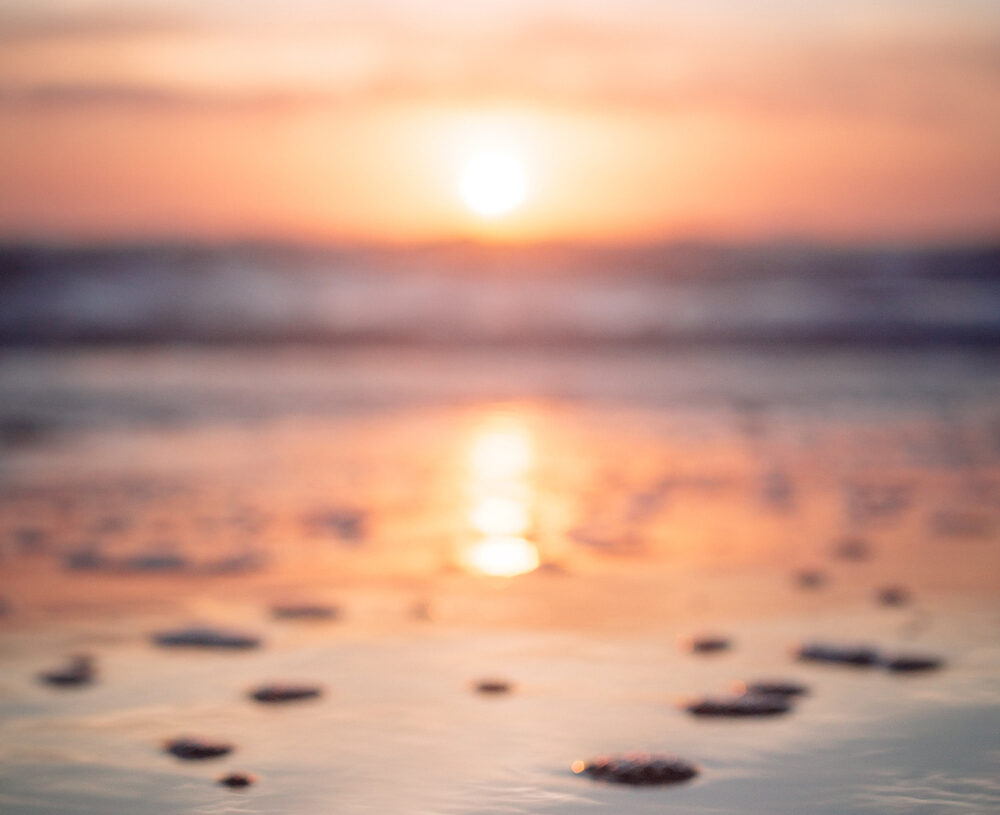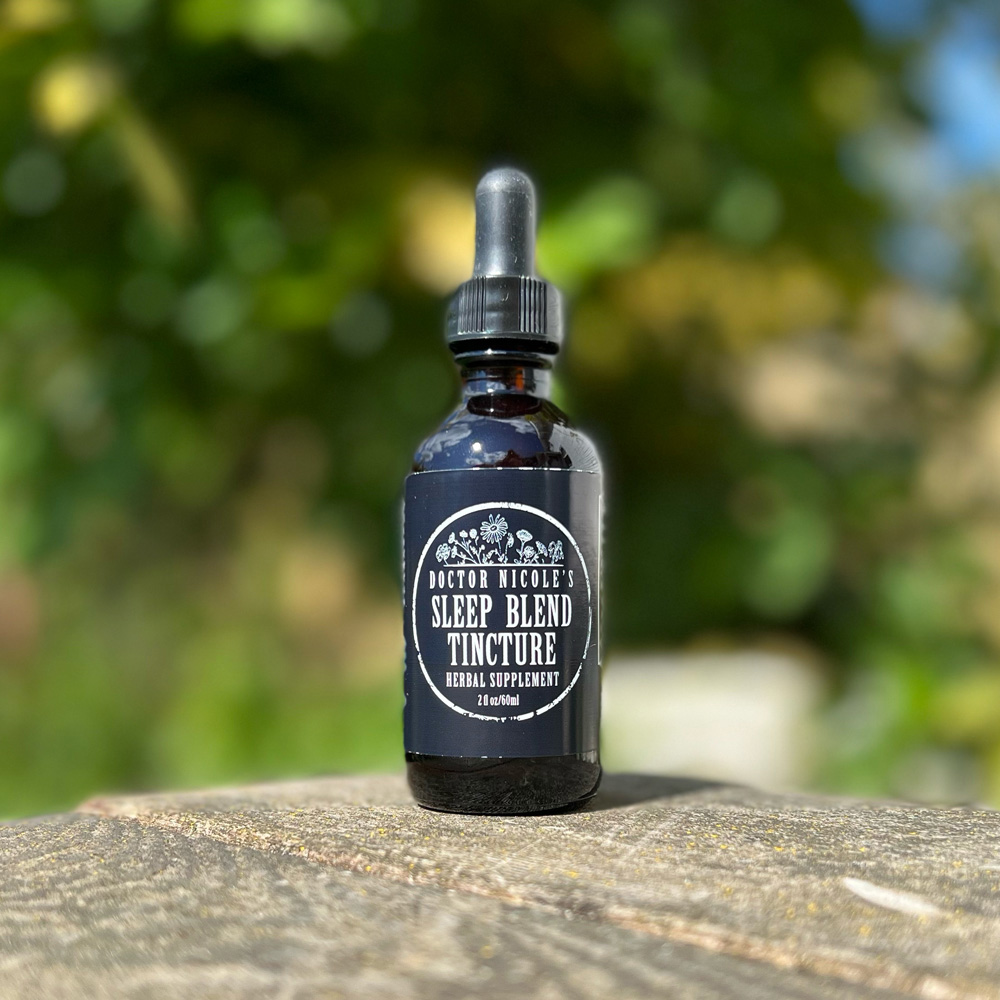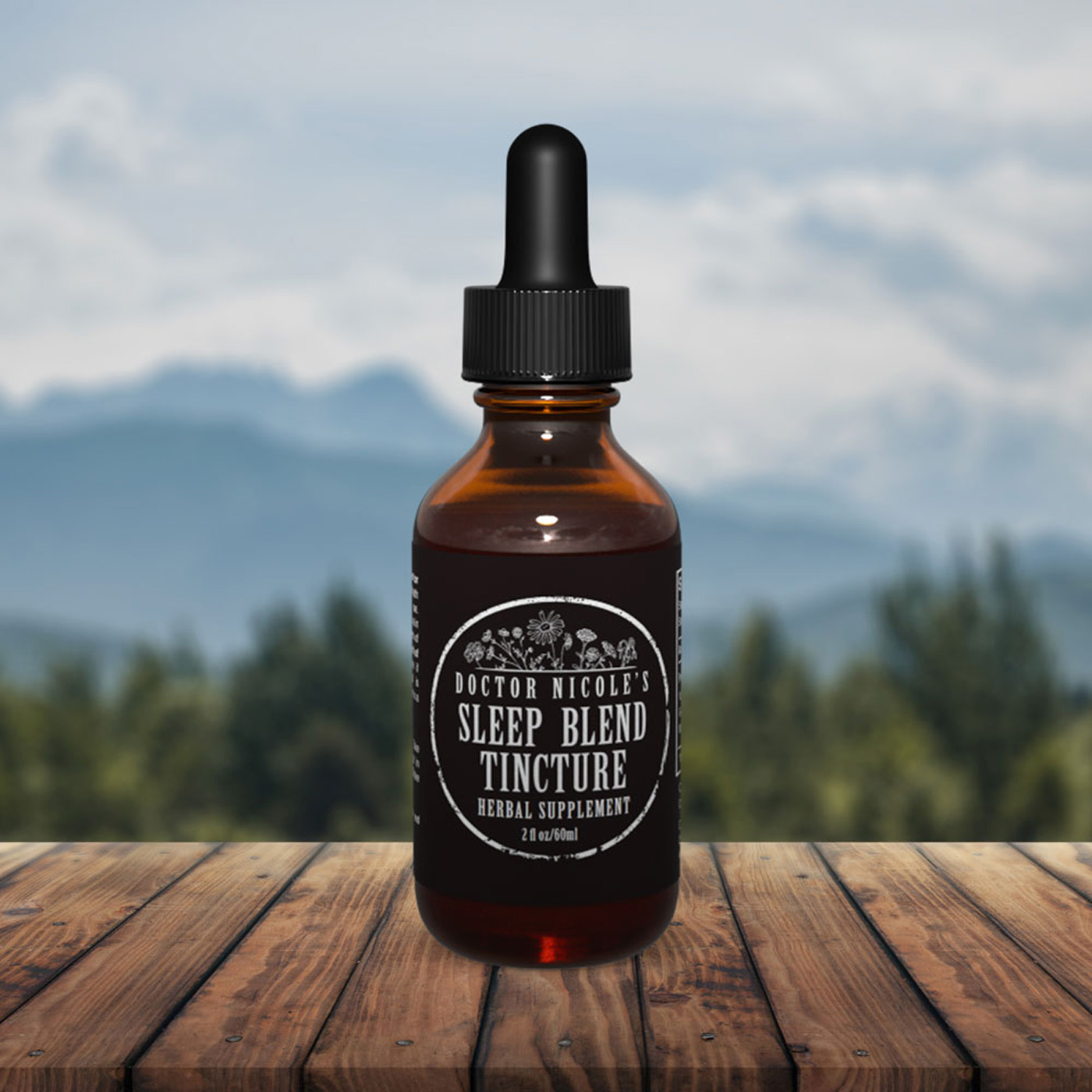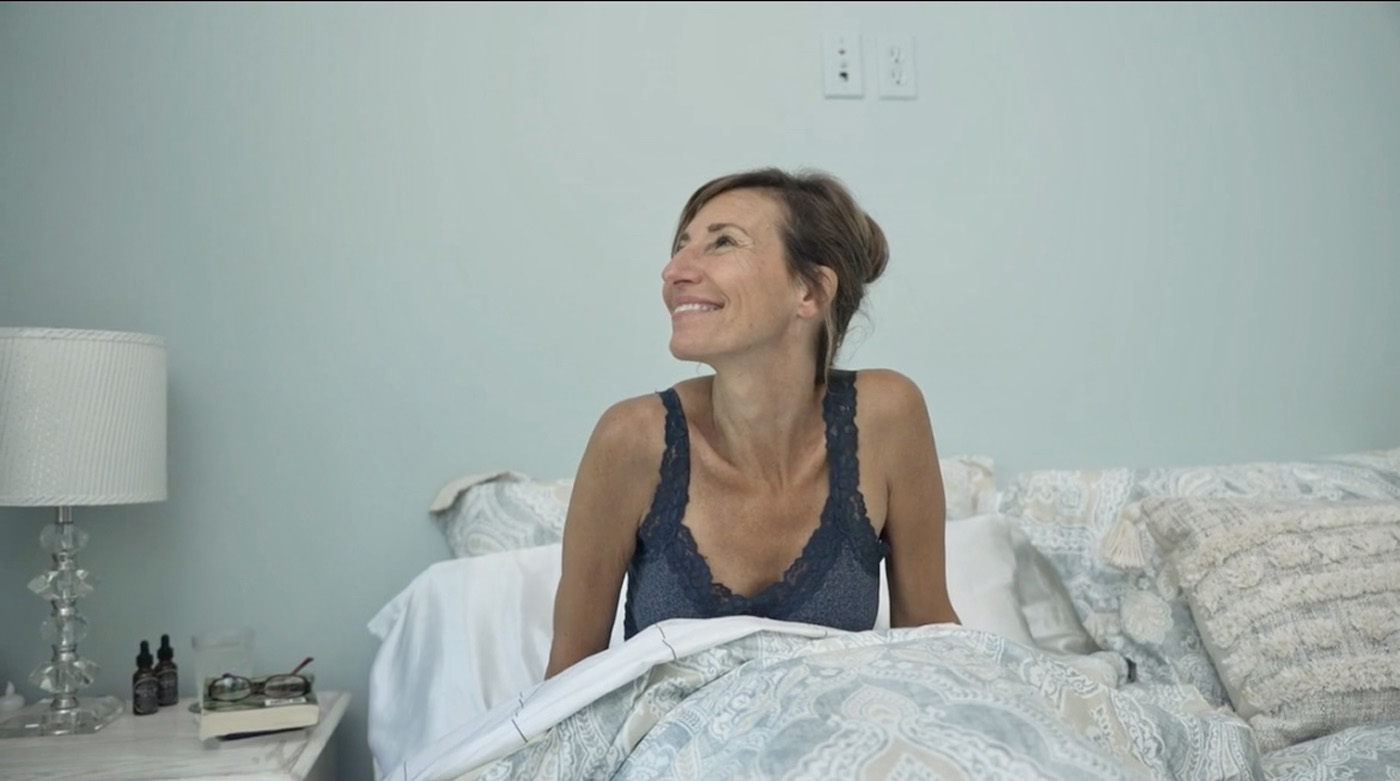The Physical and Mental Cost of Poor Sleep
A new study published in the journal Cell has found that global warming will significantly reduce sleep quality and length around the globe.6 Those who live in warmer climates will feel the impact the most and will lose more sleep per degree of temperature rise compared to their northern counterparts. Since quality sleep is closely tied with immune, neurological, and cardiovascular health, the implications are significant. Moreover, this rise in temperature will also affect cognitive function, including the ability to learn and mental health outcomes.7,8 In the coming days it will be important to learn how to deal effectively with this increase of temperature so that we can protect our overall health. Let’s explore several active steps we can take to minimize the impact.
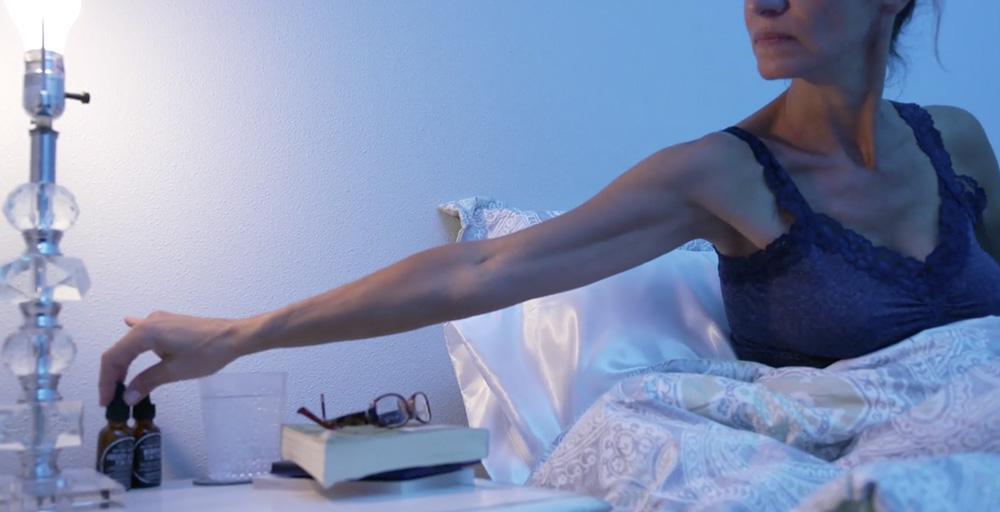
How to Encourage Sweet, Deep Sleep
“Studies from multiple disciplines have repeatedly shown that poor sleep is implicated in a range of negative health outcomes, from reduced immune function to worsened cardiovascular outcomes to poorer mental health,” – Marshall Burke, Ph.D., Associate Professor of Earth System Science at Stanford University
It is a well-known fact that when we don’t get enough deep, rejuvenating sleep, our health is significantly affected. For years, researchers have found that when we don’t have quality sleep each night, our mental and physical health, as well as our performance, suffers.1 We face increased brain fog, fatigue, irritability, depression, weight gain and more. Of course, for anyone with insomnia, this will come as no surprise as you have experienced firsthand these impacts.
One of the best steps you can take to improve sleep is to get enough bright, natural light before noon and minimize your exposure to artificial and blue light in the evening so as not to disrupt your circadian rhythm and melatonin release. When we are exposed to these light sources after dusk, we also increase the risk of blood sugar issues, weight gain and obesity, macular degeneration, cardiovascular disease, and mood disorders.
It is also important to make sure you are sleeping in a completely dark room to optimize melatonin production. This means blocking any form of light in your bedroom such as nightlights, digital alarm clocks, street lights or moonlight streaming through the window, falling asleep in front of the television, etc.
See my post, “Light Pollution: Why it Matters if You Want to Live a Healthy Life” to learn more about the impact of artificial and blue light on wellbeing and simple ways you can minimize your exposure.
Moreover, make sure you go to bed at night and get up in the morning at the same time everyday — even on the weekends. Relaxing bedtime routines are also helpful. A self-massage with an essential oil blend of German chamomile, lavender, and tangerine in the evening helps to calm the nervous system and signal that it is time to wind down from the day.
A fascinating 2005 study found that when a group of 31 young adults were exposed to the scent of lavender oil in the evening, they experienced increased deep, slow brainwave sleep and improved vigor the following morning.2 Likewise, research published in the journal Molecules found that tangerine essential oil also altered brainwave activity, which had a sedative effect that encouraged calm sleep.3 Chamomile is a well-known sedative due to the presence of apigenin that binds to benzodiazepine receptors in the nose. The herb also helps to alleviate muscle aches and pains.4
Other essential oils that are helpful for anxiety, stress, and restlessness include bergamot, valerian, ylang ylang, and frankincense. Always make sure your essential oil is diluted in a carrier oil such as jojoba or almond before applying to the skin. Use the ratio of three drops of each essential oil to one tablespoon carrier oil.
I also like to drink a cup of relaxing herbal tea before bed as a soothing nighttime ritual. During the warmer months, I let it cool to room temperature before enjoying. Do not drink it iced as cold foods before bed can disrupt sleep. Good herbal tea choices include magnolia, passion flower, chamomile, and valerian.
Discover the Power of Herbal Medicines for Sound Sleep
Truth be told, I tend to largely rely on herbal tinctures if I find myself struggling with poor sleep due to the hormonal shifts of menopause, hot weather, stress, or a mind that simply won’t turn-off at bedtime. And because I know that many others often experience poor sleep, I developed a potent Sleep Blend formula that helps you to fall asleep faster and stay asleep longer.
It boosts the production of GABA, a calming neurotransmitter that promotes sleep.5 It also tackles sleep issues that are caused by menopause. This formulation is a powerful blend of valerian root, hops, chamomile, passion flower, and magnesium glycinate — a highly absorbable form of magnesium that improves sleep patterns by encouraging healthy REM cycles and the production of melatonin.
But that’s not all. Visit my apothecary today to learn more!
Nicole Apelian
Nicole’s Apothecary Products in this Post
References
-
Charest, J., & Grandner, M. A. (2020). Sleep and Athletic Performance: Impacts on Physical Performance, Mental Performance, Injury Risk and Recovery, and Mental Health. Sleep medicine clinics, 15(1), 41–57. https://doi.org/10.1016/j.jsmc.2019.11.005
-
Goel, N., Kim, H., & Lao, R. P. (2005). An olfactory stimulus modifies nighttime sleep in young men and women. Chronobiology international, 22(5), 889–904. https://doi.org/10.1080/07420520500263276
-
Chandharakool, S., Koomhin, P., Sinlapasorn, J., Suanjan, S., Phungsai, J., Suttipromma, N., Songsamoe, S., Matan, N., & Sattayakhom, A. (2020). Effects of Tangerine Essential Oil on Brain Waves, Moods, and Sleep Onset Latency. Molecules (Basel, Switzerland), 25(20), 4865. https://doi.org/10.3390/molecules25204865
-
Srivastava, J. K., Shankar, E., & Gupta, S. (2010). Chamomile: A herbal medicine of the past with a bright future. Molecular medicine reports, 3(6), 895–901. https://doi.org/10.3892/mmr.2010.377
-
Lindahl O, Lindwall L. Double blind study of a valerian preparation. Pharmacol Biochem Behav. 1989 Apr;32(4):1065-6. doi: 10.1016/0091-3057(89)90082-8. PMID: 2678162. https://pubmed.ncbi.nlm.nih.gov/2678162/
-
Minor, K., Bjerre-Nielsen, A., Jonasdottir, S.S., Lehmann, S., Obradovich, N. (2022). Rising temperatures erode human sleep globally. Cell, 5(5), 534-549. https://doi.org/10.1016/j.oneear.2022.04.008
-
Mullins, J. T., & White, C. (2019). Temperature and mental health: Evidence from the spectrum of mental health outcomes. Journal of health economics, 68, 102240. https://doi.org/10.1016/j.jhealeco.2019.102240
-
Park, R.J., Behrer, A.P. & Goodman, J. Learning is inhibited by heat exposure, both internationally and within the United States. Nat Hum Behav 5, 19–27 (2021). https://doi.org/10.1038/s41562-020-00959-9

